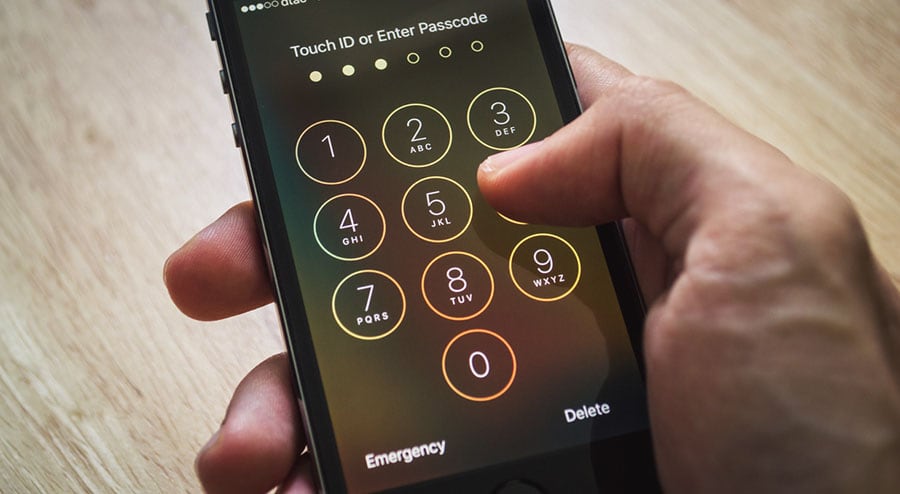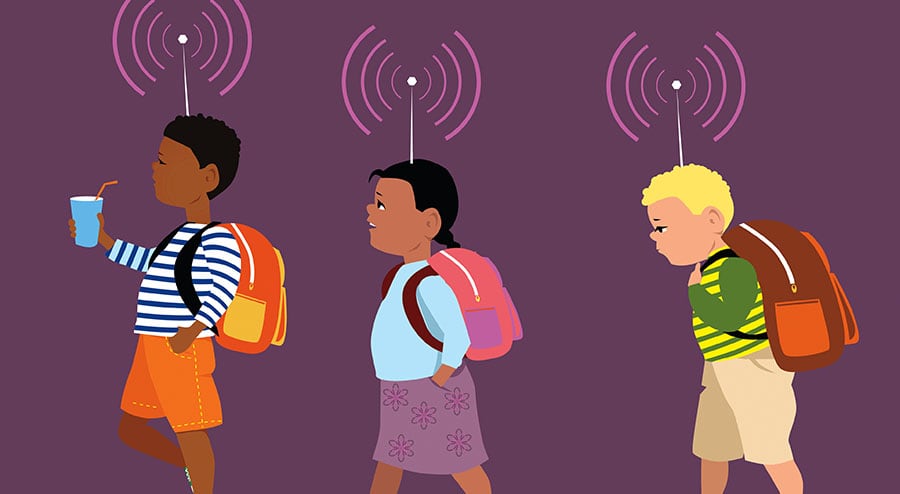For the majority of Americans today, using the Internet is a way of life. While the Internet and other technology enrich our lives, it can also be bad for your health. In this guide, we will look at some general advice and rules for keeping the family safe when using the Internet, as well as safety tips parents can implement to minimize health problems associated with using computers for too long. This is especially important when parents worry—having a health and safety plan in place at home and at school offers peace of mind for the whole family.
Eye Strain
Often, when people use computers for long periods of time, especially all day at work, they can easily develop eye strain. If you spend a long time using a computer daily and you develop any of the following symptoms, you could very well be affected by eye strain.
- Headaches
- Eye discomfort
- Sore, tired, burning or itchy eyes
- Difficulty focusing
- Dry eyes
- Watery eyes
- Blurred or double vision
- Increased sensitivity to light
It could be that your job demands that you spend all day at your PC. In which case, the discomfort of eye strain may be unavoidable; however, you can minimize it by taking certain steps.

Resting Your Eyes
Simply resting your eyes from time to time will relieve immediate discomfort for most people. It is best to take small frequent breaks rather than longer breaks spaced further apart. When you do take a break, you should try to focus on objects that are far away, so take a look out of the office window.
When you do this the muscle inside the eye is forced to relax and this will minimize the discomfort. Take regular breaks to go make a drink and if need be inform your manager that you are experiencing eye strain and need to short, regular breaks.
Lighting
A contributing factor to eye strain is incorrect lighting. Office environments should be carefully planned and computer workers should not have a workstation that is directly under a bright fluorescent light strip. It is best to use floor lamps and the office should have blinds over windows so that bright sunlight does not pour in.
Glare
Glare from reflections will also add to eye strain. Use an anti-glare screen on your monitor to reduce this. A computer hood can also be useful in reducing glare. If you use an old CRT monitor and are experiencing eye strain then speak to your manager about having your monitor updated to an LCD screen. If you wear glasses then there are special lenses you can purchase that reduce glare.
Monitor
Ensure that you set your monitor to the same brightness as the office environment and make sure that the font size is comfortable for you to read. You should make sure that your monitor is approximately 2 feet from your eyes at an angle of around 15 degrees. If you are a typist then make sure you have a stand for the document you are copying to avoid continually shifting your gaze from the table to the screen.
Eye Test

If you are experiencing eye strain then you should have an eye test just to rule out any underlying causes and assist with any advice. Ask your employer about obtaining a funded eye test.
Neck and Back Pain

With more and more jobs being office-based, and with the rise of tablets and smartphones, the amount of time that people stare at a screen has increased significantly. This imbalance in the way we use our bodies all too often leads to discomfort and pain in the neck, back, and shoulders in particular. There are, however, some simple steps you can take to minimize and alleviate discomfort.
Workstation
You should have an ergonomic evaluation of your workstation. That means more than just having an adjustable chair. The evaluator should give specific advice as to how you should best adjust your chair and monitor and how to sit which is specific to your individual needs. It may be that in the case of severe neck and back pain that a standing workstation is recommended, especially if you undertake long hours.
Are You Sitting Comfortably?

When you are seated at your workstation, you should pay attention to your posture. Your feet should be flat on the floor and the chair needs to be adjusted to your height so that your thighs are tilted downwards at a slight angle. You should be sat straight and avoid leaning forward which can lead to shoulder and lower back pain.
Keyboard and Mouse
Your keyboard and mouse should also be at a height that means you do not slump forward. Your elbows should be at an angle of 90 degrees.
Take A Break
As with eye strain, taking regular breaks will alleviate discomfort. Take a break and walk around the office. If you often tend to be engrossed in your workload then set an alarm every half an hour to remind you to take the strain off.
Monitor Placement
It is recommended that the base of your monitor is in line with your chin to avoid leaning forwards and causing pain. Laptop users nearly always slump forward when using them so it is advised that you use a regular PC when at all possible.
General Tips For Internet Safety

With so many of us logging on each and every day, the Internet is a wonderful addition to our lives. It allows us to work, socialize, educate ourselves, and so much more but the dangers on the Internet are a major concern. Fortunately, you can take steps to stay safe.
Cyberbullying
Cyberbullying affects adults and children alike. This form of crime has the effect of causing misery and leads to thousands of deaths every year, especially teenagers who ultimately commit suicide. Take these steps to keep yourself and family safe.
Educate children that cyberbullying is wrong, that it is not their fault, and to come to you if they are experiencing online bullying.
Regardless of whether the person experiencing cyberbullying is an adult or a child, the best way to deal with it is to not respond. Bullies like to know the effect they are having and if they see they are causing harm it will only fuel their behavior.
If the bullying persists, then keep a log of all the posts and comments so that you have a record of the harassment.
If cyberbullying is due to a work colleague, then inform your manager or human resources department. In the case of children, inform the school principal.
If the harassment is serious, consider calling in law enforcement officers with the details you have collected.
Block bullies and inform the sites and your Internet Service Provider. Finally, if all else fails, it may be time to change your email address, contact details, and phone numbers.
Keeping Personal Information Safe
It is amazing the amount of information that people put out on social media platforms. From their date of birth to workplaces, friends and family, where they live, and when they are going on holiday. At the same time, they will happily accept friend requests from complete strangers. Fraudsters armed with some information can go on to gather more information making you an easy target for fraud. Follow some simple steps to keep safe.
Monitor your child’s Facebook and other social media accounts and educate them to never accept friend requests from people they do not know. If you see a new “friend” on their account and you do not know them, ask your child about that person.
Similarly, do not be tricked yourself by accepting friend requests from those you have never heard of just because they apparently share a hobby or pastime with you.
Keep personal information to a minimum and make it so that it can only be read by friends you know by using privacy settings.
Safe Shopping
Nearly all of us shop online but bear in mind that when you do shop online you are giving out your personal and financial details. You can stay safe by only shopping on secure websites. You should only shop on sites that are well established and well-known. The only websites you should ever use are those that start with “https.” Any site that starts with just “http” is not secure.
Safe Passwords

So many sites these days ask you to create an account and a password and so how do you remember them all? Most users don’t remember them at all and rely on one password for multiple—if not all—their accounts. In the event of a corporate cyber attack, your password could end up in the hands of a hacker who can then use that password with ease to hack into all your other accounts.
Take the time to teach your children to create strong passwords and to not use the same passwords for banking, emails, and social media.
Use a password manager or a document you have created yourself to keep a record of different password you use for different accounts. Ensure that your PC is locked and has a password just like you do at work.
Phishing Scams
Keep yourself safe from phishing scams by using common sense. Phishing scams have been highly successful in obtaining personal information as well as damaging your devices with malware.
Educate your children not to open emails from anyone they do not know. Do not click on any emails that you do not know the source of and remember that, if it looks too good to be true, it likely is.




